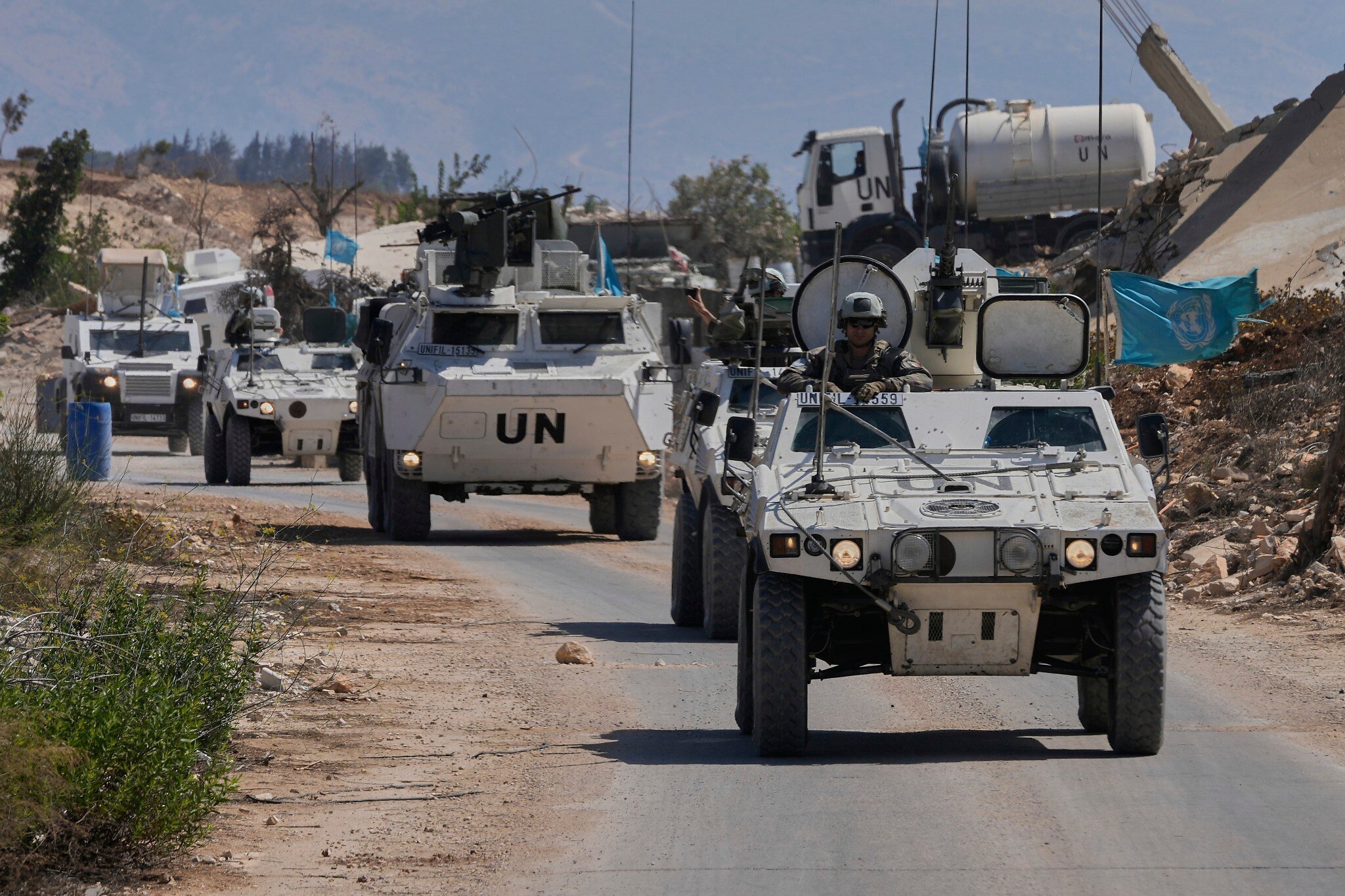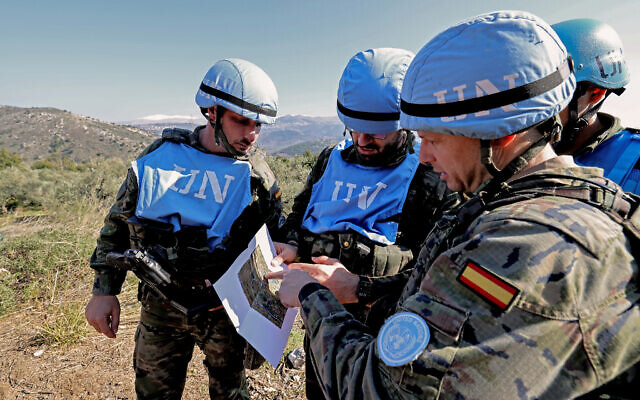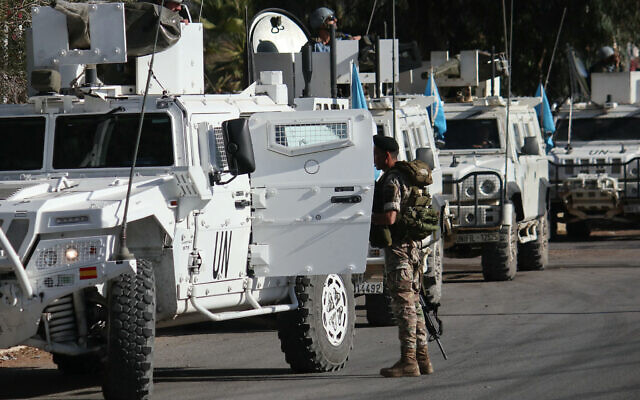



The United Nations Security Council on Thursday unanimously extended “for a final time” a long-running peacekeeping mission in Lebanon until the end of 2026, when the operation will then begin a year-long “orderly and safe drawdown and withdrawal.”
The UN Interim Force in Lebanon (UNIFIL), established in 1978, patrols Lebanon’s southern border with Israel.
The 15-member council unanimously adopted a French-drafted resolution after a compromise was reached with the United States, a veto-wielding council member.
The Security Council decided “to extend for a final time the mandate of UNIFIL.”
The resolution “requests UNIFIL to cease its operations on 31 December 2026 and to start from this date and within one year its orderly and safe drawdown and withdrawal of its personnel, in close consultation with the Government of Lebanon with the aim of making Lebanon Government the sole provider of security in southern Lebanon.”
UNIFIL’s mandate was expanded in 2006, following a month-long war between Israel and Hezbollah, to allow peacekeepers to help the Lebanese army keep parts of the south free of weapons or armed personnel other than those of the Lebanese state.
Israel has long argued that the force had failed in its mission, doing little to block Hezbollah from building up its forces near the Israeli border over decades.
In the wake of the war between Israel and Hezbollah last year, which devastated the terror group, Lebanon’s new government has moved to curb Hezbollah’s power, disarm the group and reassert control. At the same time, Beirut officials had called for UNIFIL to remain for now, saying the country’s cash-strapped and overstretched army was unable to patrol the full area on its own.
Israel had opposed any move to extend the mission. The US had appeared to be leaning toward Jerusalem’s position, initially demanding that the force end its work in six months and later seeking a 12-month final extension, but ultimately voted on Thursday in favor of a final 16-month mandate.
This will be the last time the United States will support an extension of UNIFIL, said acting US Ambassador to the UN Dorothy Shea. “The security environment in Lebanon is radically different than just one year ago, creating the space for Lebanon to assume greater responsibility,” she told the council.
Lebanese Prime Minister Nawaf Salam welcomed the decision to extend UNIFIL’s mandate until December 2026, and thanked “all friendly countries in this Council that expressed their understanding of Lebanon’s concerns.”
The Security Council resolution, sponsored by France, gives the force a year starting on December 31, 2026, to withdraw its 10,800 military and civilian personnel and all UN equipment. During this withdrawal period, UNIFIL will be authorized to carry out a few limited activities.
These include providing security and assistance to UN personnel, “to maintain situational awareness in the vicinity of UNIFIL locations,” and to contribute to the protection of civilians and the safe delivery of humanitarian aid “within the limits of its capacities.”
The resolution urges the international community “to intensify its support, including equipment, material and finance” to the Lebanese armed forces.
France’s deputy UN ambassador, Jay Dharmadhikari, welcomed the unanimous vote, saying last November’s cessation of hostilities between Israel and Hezbollah placed Lebanon on a path to regain sovereignty over its entire territory and toward regional stability.
He said UNIFIL’s ongoing operations are still vital, stressing that its mandate until the end of 2026 will give the force “precious time … to work alongside the mounting capabilities of the Lebanese arm so that sovereignty can be extended throughout Lebanese territory.”
Dharmadhikari warned that “any premature withdrawal could undermine or even weaken” that effort.
The US commended the progress of deployment of Lebanese forces, Shea said, and will keep working with it “to expand its capabilities as Lebanon carries out its critical work in disarming Hezbollah.”
She urged the international community to use the coming year to bolster the Lebanese armed forces and “set Lebanon up for success.”
Israel welcomed the decision to terminate UNIFIL’s mandate.
Foreign Minister Gideon Sa’ar hailed the move and credited Washington for enabling it, saying in a statement from his office that Israel “appreciates the stance of the United States, and particularly that of Secretary of State Marco Rubio, which made this outcome possible. US involvement in shaping a more secure environment for the states of the region is welcome.”
“The recent developments in Lebanon are positive developments. Israel will continue to ensure that these gains are not eroded and that the security of the residents of the north is safeguarded,” he said.
The Foreign Ministry added that ahead of the Security Council discussion on UNIFIL, it “coordinated interagency preparations together with the IDF and the National Security Council,” and held talks with “key international partners,” in efforts it claims led to the decision to end UNIFIL’s mandate.
Meanwhile, Israel’s Ambassador to the UN, Danny Danon, celebrated the “good news” in a video message, saying UNIFIL had “failed in its mission and allowed Hezbollah to become the region’s most serious threat.”
“The Lebanese government now needs to take responsibility and ensure that no other force is present on its border with Israel,” he added.


